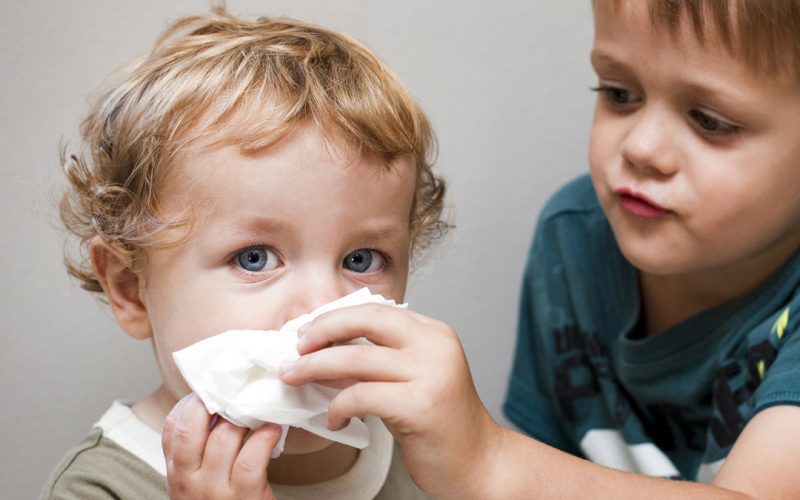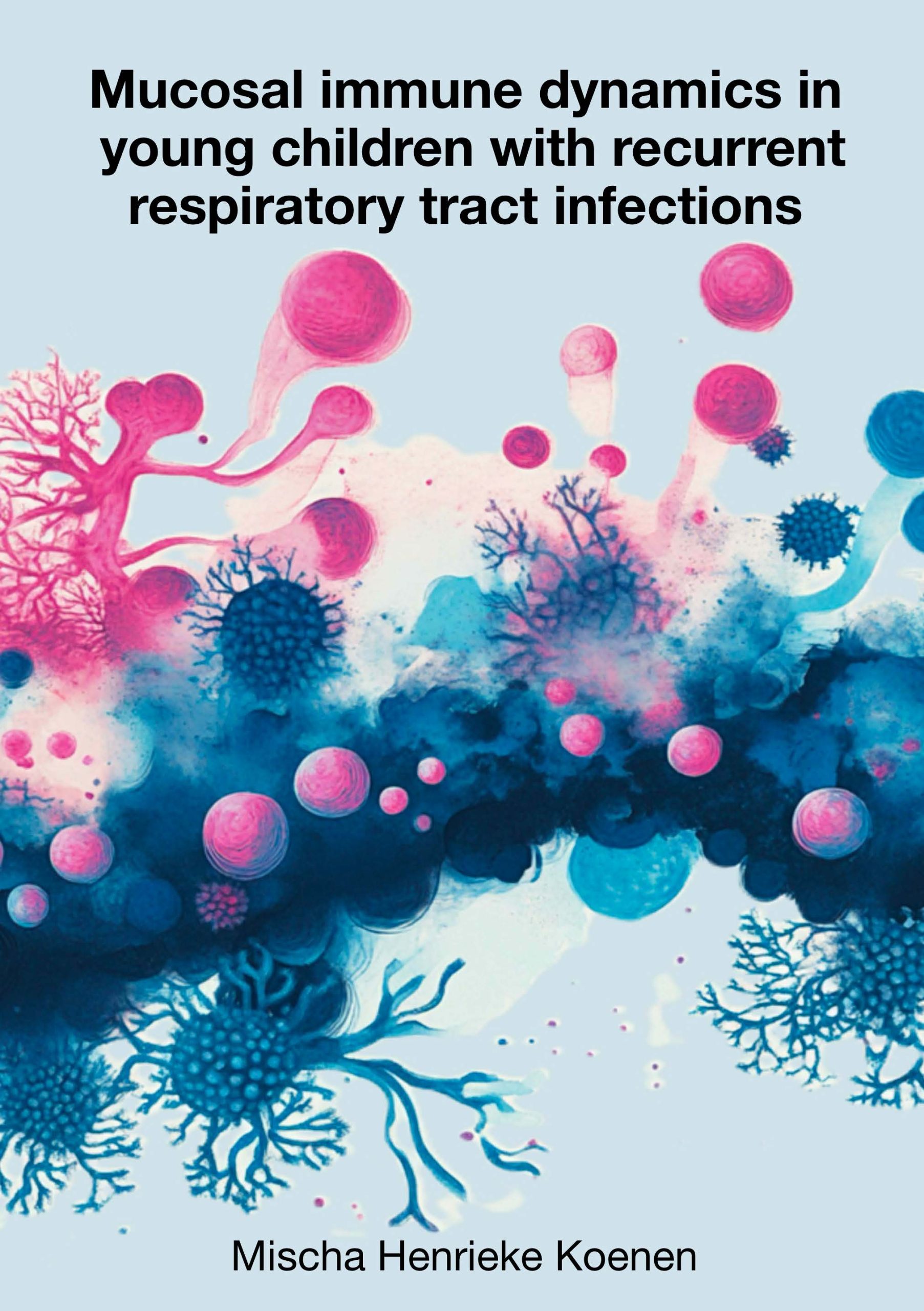While serum antibody levels help identify susceptibility to respiratory tract infections on a population level, they cannot predict disease outcome in individual children with recurrent infections. Mischa Koenen (UMC Utrecht) concluded in her PhD thesis that markers in the mucosa of the airways can predict disease severity in these children. She identified broadly binding antibodies in saliva that are protective against respiratory infections and found that the bacterium Haemophilus influenzae worsens severity of respiratory infections.
Young children often experience respiratory tract infections (RTIs), which are usually mild and confined to the mucosa of the airways. Children with recurrent RTIs suffer from an above-average number of infections, which can damage their airways and lead to chronic lung disease such as COPD later in life. To understand why, doctors often check the immune system by looking at serum antibody levels. A shortage of one specific type of antibody, called Immunoglobulin A (IgA), is more common in these children and is linked to changes in their gut microbiota. In recent years, much information has been generated on risk factors and underlying conditions in children with recurrent RTI, but the immunological and/or mucosal mechanisms behind the recurrent nature of RTIs in young children have remained largely unknown. The PhD research by Mischa Koenen, MD (Center for Translational Immunology, UMC Utrecht) therefore examined the role of the systemic as well as the mucosal immune system of the airways in young children to address current knowledge gaps. The research data in this thesis have been derived from the prospective ‘Deficiency of IgA and Microbiome in RTIs (DIMER)’ study that was conducted in 167 young children (mean age 3.7 years) from 2016-2019.
Investigator Mischa Koenen, MD PhD
In the airway lining, antibodies (in particular IgA) in saliva as well as the respiratory microbiota form the first line of defense against pathogens. In addition, there is also an important role for the gut microbiota since cross-talk between the gut and airway mucosal immune system is suggested to influence respiratory health and disease risk. In her PhD research, Mischa Koenen found that the intestinal microbiota composition was altered in children with IgA deficiency and recurrent RTIs. In addition, in an experimental study she found that certain beneficial bacteria, such as Bifidobacterium, can stimulate IgA production. This finding might be useful for development of future probiotic treatments that strengthen immunity in children with recurrent RTIs that lack IgA.
Mischa Koenen found that on a population level, antibody deficiencies make children more vulnerable to recurrent RTIs. However, antibodies in blood were not reliable predictors of disease severity in children with recurrent RTIs, but certain markers of the mucosa did predict disease severity. She identified broadly protective antibodies in saliva that act against a wide variety of pathogens. In fact, these antibodies were so versatile that saliva samples collected prior to the COVID-19 pandemic contained antibodies which appeared to be capable of binding to the SARS-CoV-2 virus. Children with lower levels of such broadly protective antibodies experienced more severe RTIs. Furthermore, the presence of the potentially harmful bacterium Haemophilus influenzae in the airway microbiota was also strongly linked with carriage of bacteria that can cause pneumonia, such as Mycoplasma pneumoniae and more severe respiratory infections.
Mischa Koenen concluded: “Measuring antibodies in saliva and harmful bacteria in the airways can help identify children at high risk of severe infections. This enables targeted, personalized treatments to reduce disease burden and long-term damage from recurrent RTIs in these children.”
Mischa Henrieke Koenen, MD (1994, Haarlem) defended her PhD thesis on February 11, 2025 at Utrecht University. The title of her thesis was “Mucosal immune dynamics in young children with recurrent respiratory tract infections”. Supervisors were prof. Marianne Boes, PhD (Center for Translational Immunology, UMC Utrecht) and prof. Debby Bogaert, MD PhD (Center for Inflammation Research, University of Edinburgh). Co-supervisors were Lily Verhagen, MD PhD (Department of Pediatric Infectious Diseases and Immunology, Radboudumc, Nijmegen) and Erhard van der Vries, PhD (Department of Research & Development, GD Animal Health, Deventer).


